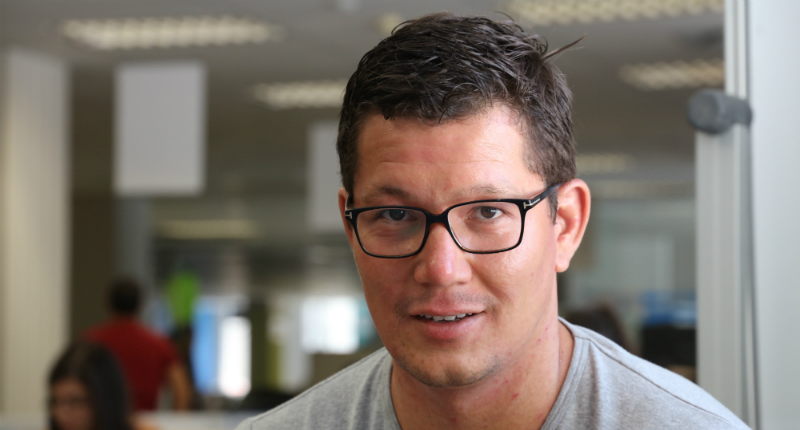AI is disrupting education. But despite what the headlines (and some ChatGPT horror stories) might suggest, South African teachers aren’t being replaced — they’re…
Is Silvertree’s co-entrepreneur model the answer to Silicon Valley?

What is a co-entrepreneur? A glorified manager or a true entrepreneur? For Silvertree Internet Holdings managing director and co-founder Manuel Koser a co-entrepreneur is any entrepreneur whose business the holding company buys out and then asks to stay on.
Koser argued in an article on Ventureburn last month that the Silicon Valley model — of investing round after round of funds through often minority stakes in a startup before exiting for tens of millions of dollars — does not work in Africa.
The alternative, he believes, is a holding company that buys up significant (usually majority) stakes in startups and turns their founders into what he terms “co-entrepreneurs”. Some in the continent’s VC sector liken this to the Rocket Internet model.
That’s no surprise — as Koser once headed online fashion retailer Zando, a Rocket Internet company. Rocket Internet is a startup incubator whose business model is to identify successful internet ideas and replicate them in other countries.
For Silvertree’s Manuel Koser his company is something like a Bidvest or Discovery, acting like a holding company to acquire new firms
“We are entrepreneurs so we want to support entrepreneurs,” Koser said in a call last week to Ventureburn, while explaining that Silvertree’s aim is to build a range of internet-focused companies.
Silvertree’s first investment was made in 2013 and today the company has a portfolio of 12 firms which include among others Pricecheck.co.za, CompareGuru.co.za, Peatheaven.co.za, Faithful-to-Nature.co.za, Cybercellar.com, aumax.co, UCook.co.za and CarZar.co.za.
Koser reveals that Silvertee’s portfolio companies last year generated a combined $40-million in revenue and total revenue generated is now growing at 100% a year. “We are reinvesting everything back into these companies,” he adds excitedly.
About 80% of his time is spent in operations in one of the 12 portfolio companies.
Silvertee sources the capital it uses to invest in acquiring stakes in other firms from a mix of directors’ and shareholders own money and from family offices. This, argues Koser, makes Silvertree a “way more flexible and supportive model”.
‘Like Bidvest, Discovery’
For Koser his company is something like a Bidvest or Discovery, acting like a holding company to acquire new firms. “Except we don’t take 100% (of the company it invests in),” he said. Yet he points out that Silvertree’s ultimate aim is to acquire 100% of any companies it invests in.
For now the company looks to take a stake of 30% to 90% in those companies it invests in, with the view of eventually increasing this to 100%. The companies range from 20-year old firms to startups.
Koser however admits that in most of its investments the company has taken the majority stake.
Does this then mean the entrepreneurs who sell to Silvertree have to resign themselves to becoming employees in their own company?
No, says Koser, pointing out that the shareholders will still enjoy “minority rights”.
‘Ecosystem for entrepreneurs’
“People that buy into us see us as a very entrepreneurial chain,” he argues, adding that Silvertree has created an “ecosystem for the entrepreneur to build his business”.
One venture capitalist told Ventureburn that one startup turned Silvertree down because the cap tables were “misaligned”. “(At Silvertree) if you’re a junior manager you won’t get the same as if you’re an entrepreneur being funded by a VC,” said the VC manager.
But Koser defends his company’s model. He calls those entrepreneurs he works with in the firms his company has invested in — “co-entrepreneurs”.
He argues that in operating together in a portfolio of companies such as Silvertree has, makes it more likely that a new venture will succeed than in what he refers to as the alternative, outside of this — an “unsophisticated ecosystem”.
When pressed he admits that in some of the portfolio companies the initial team has since exited following Silvertree’s acquisition of a stake in the firm.
Entrepreneurs, he says, need to figure out what they are good at — at starting new ventures from scratch or being involved in growing a firm. “Of course there will be some that say ‘no’,” he says.
But he stresses that even where Silvertree has a majority stake, it doesn’t mean that the original founder doesn’t have a say — they will always have “minority rights”, he argues.
Two African closures
However, Silvertree’s heavy reliance on operating those firms its acquires itself means it usually has to be close to its investment. It’s perhaps why the firm had to close two of its investments in the rest of Africa.
Koser confirmed that last year Silvertree had to close Ghanaian online deals platform Tisu and Kenyan e-commerce firm Rupu.
And it’s perhaps why Silvertree doesn’t have a significant presence outside of South Africa.
When it comes to those of its companies that do operate in the rest of the continent — Pricecheck and CompareGuru — Koser says Pricecheck is present in Nigeria only “to a small degree” and while CompareGuru is active in Nigeria and Kenya, it has not monetised traffic in Kenya yet.
Koser admits that without people like staff or agents on the ground it becomes “complex” to operate businesses in other countries.
In addition, entering a new country in Africa often means a company has to “start from zero” — acquiring things such as new suppliers and new payment bases, he adds.
And while Silvertree has been approached by both local and international investors, Koser says the company is not selling. Or are shareholders simply just waiting for the right time to come along all while trying to create economies of scale to corner the local ecommerce market?
